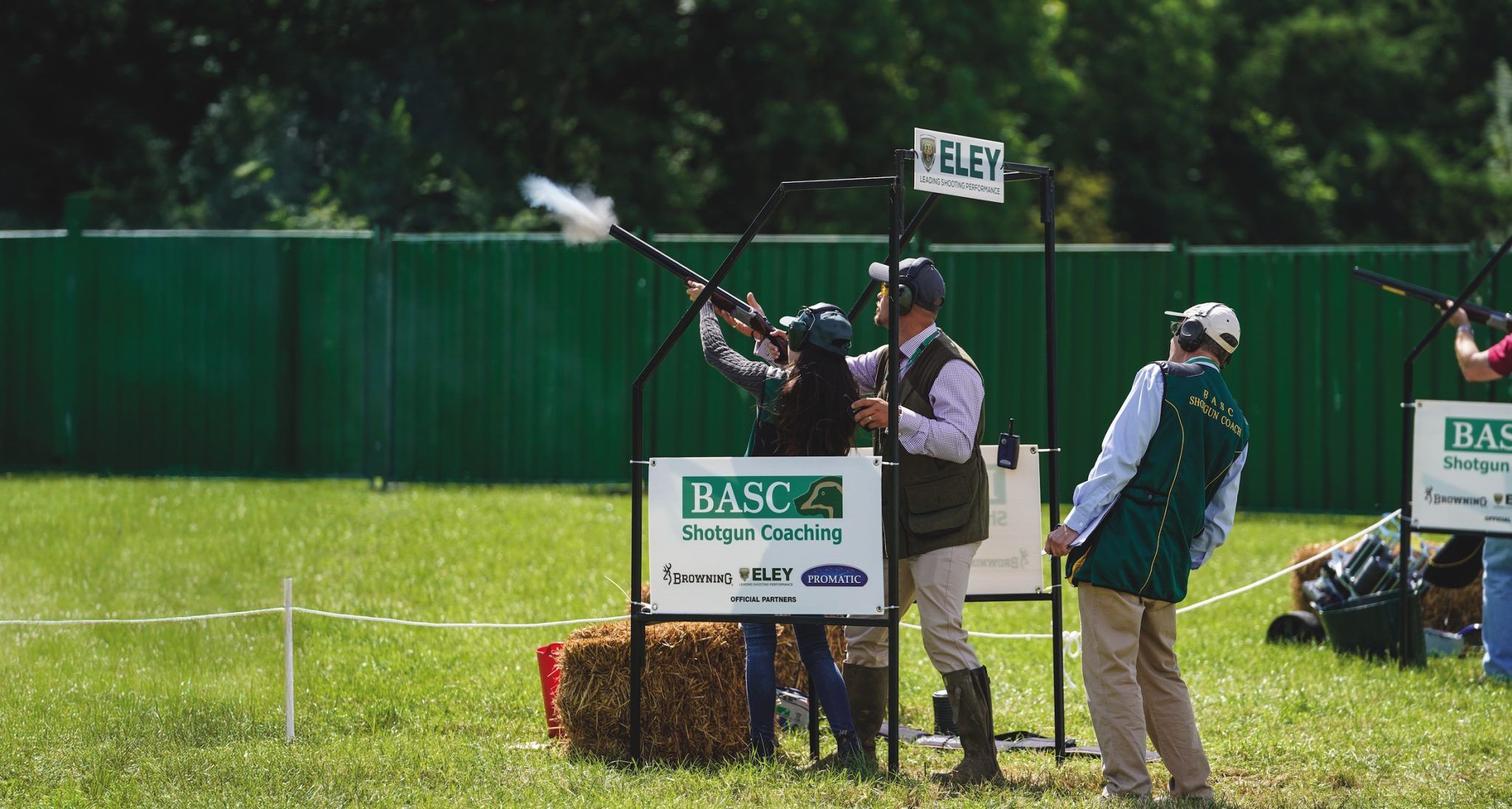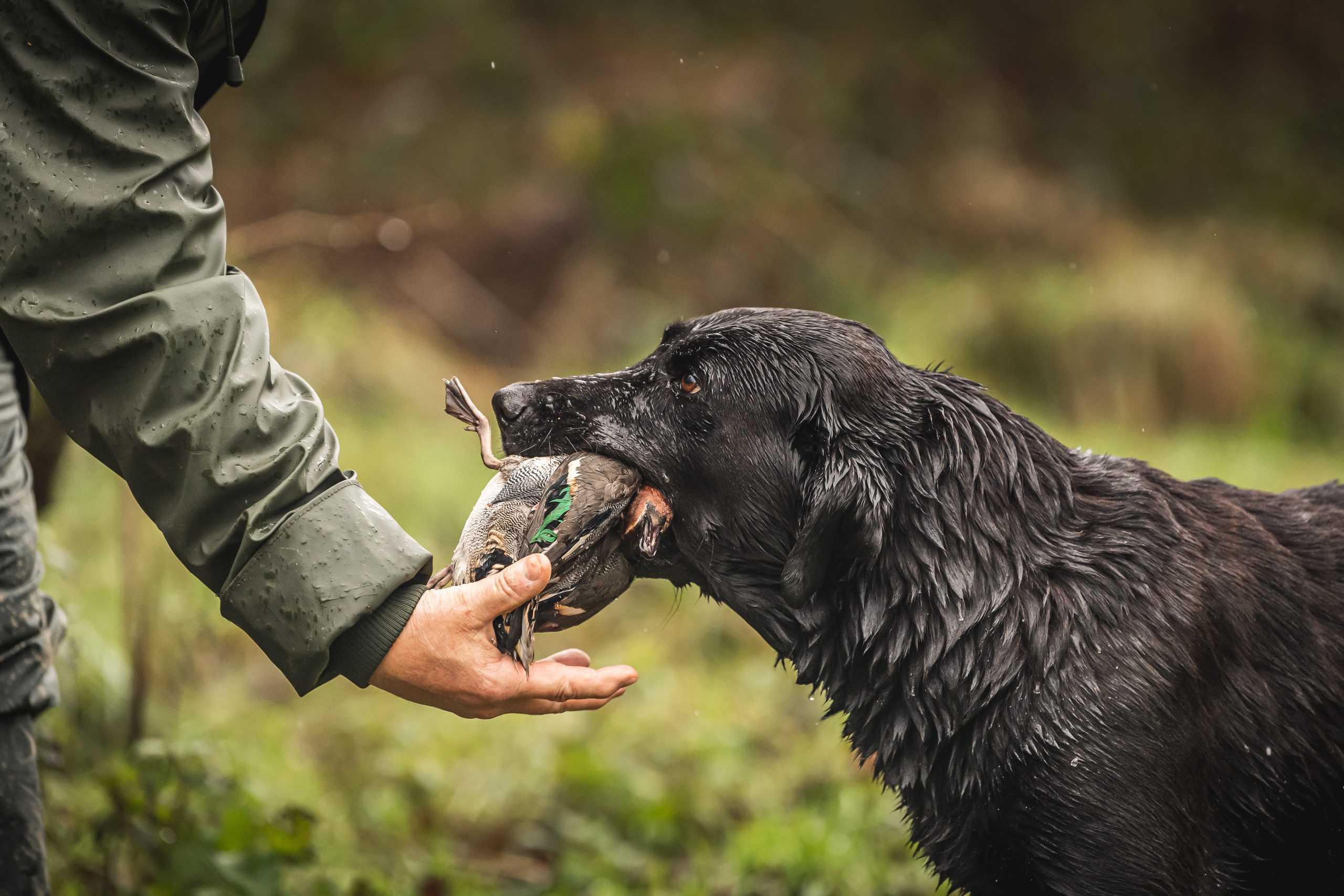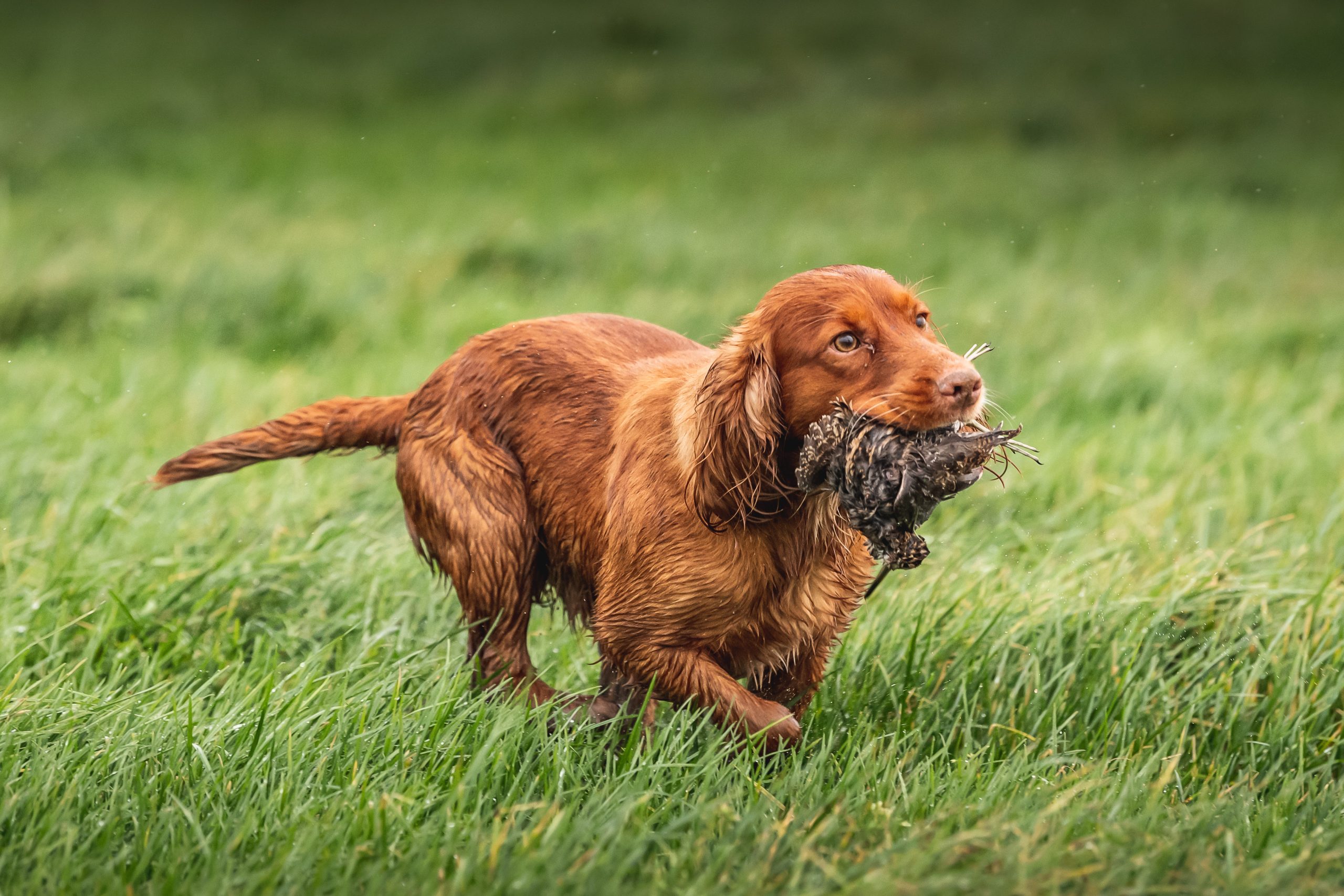Gundog news
Gundogs
Breeding sprockers – there’s a science to it
Would you like to speak to our readers? We offer sponsored articles and advertising to put you in front of our audience. Find out more.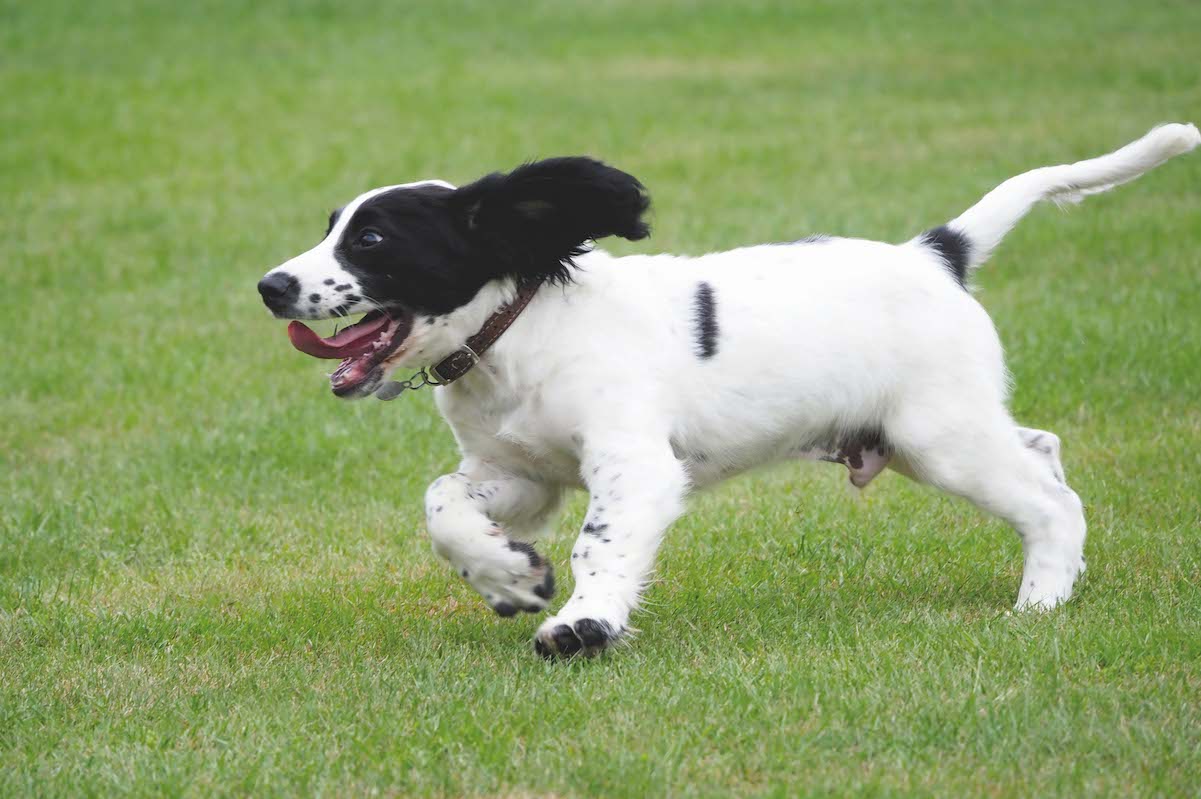 Sprockers are not necessarily more healthy than pure springers or cockers
Sprockers are not necessarily more healthy than pure springers or cockers
There’s a common belief that sprockers, the cross between a cocker and an English springer, are healthier than their pure-bred parents. Out-breeding, mixing two quite different spaniel blood lines, certainly has lots of plus points, but it doesn’t necessarily mean fitter dogs that are less susceptible to the many hereditary diseases that these two breeds suffer from. This was the stark warning from Anne-Marie Furlong, who is well qualified to speak on the subject of breeding sprockers, as she has probably bred more litters of sprockers than anyone. (Read just why is the sprocker so popular?)
Breeding sprockers
Anne-Marie runs Uggeshall Kennels in Suffolk, where for the past 11 years she has specialised in breeding pure-bred English springers and cockers, along with increasing numbers of sprockers. Though all her stud dogs and brood bitches are from working lines, most of the puppies she breeds go to pet homes, a reminder that working spaniels are vastly outnumbered by non-workers. It’s easy to understand why. If you can cope with their energy and enthusiasm for life, spaniels make great companions. (Sprocker or cocker spaniel? How can you tell them apart?)
She believes there’s a risk that sprockers could easily become too popular for their own good. “People come to me saying they would like a sprocker puppy, but they’ve rarely done any research. It’s usually because they’ve got a friend with a sprocker, or met one when they have been out for a walk, and have fallen in love with the idea. They are invariably unaware that sprockers, like all working-bred spaniels, are extremely energetic, with a high prey-drive.
“I recently had a family come to see me who wanted a sprocker. They lived in London and had three children under four. I had to be quite blunt and say I didn’t think that a sprocker would be right for them. The trouble is that they will probably go and buy one from someone else.”
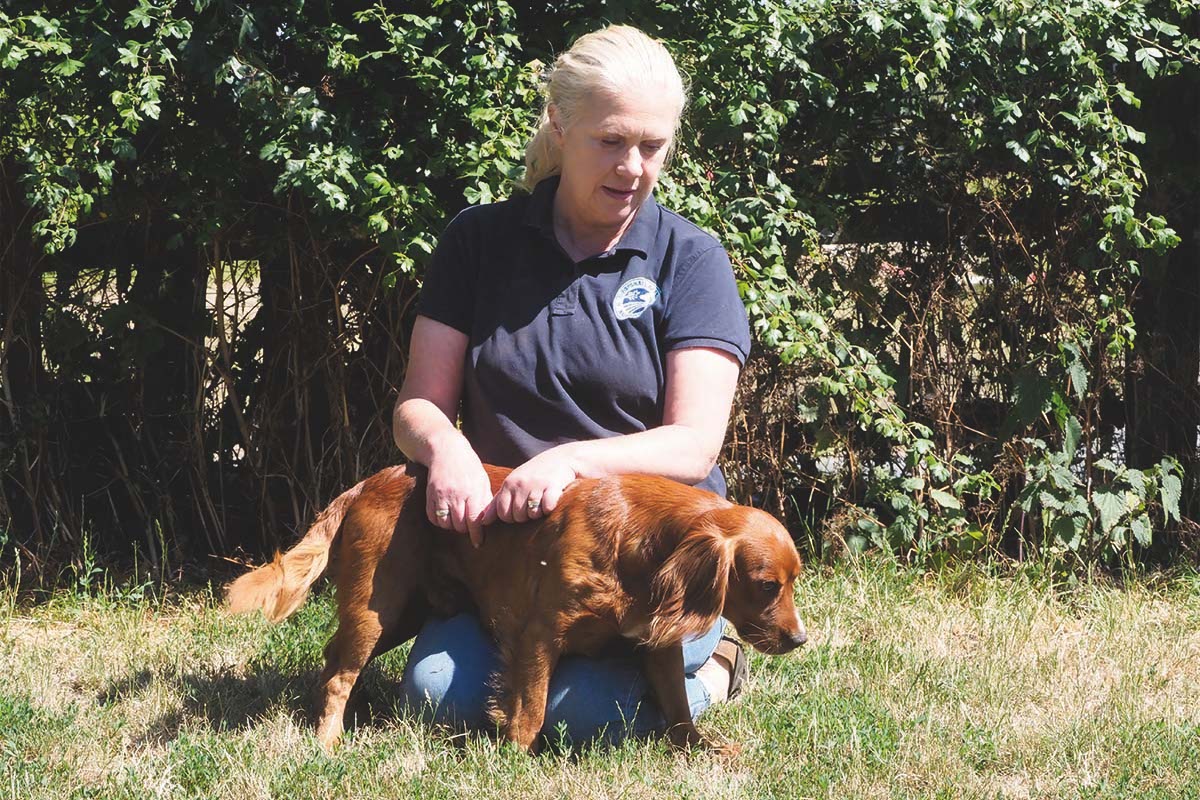
Anne-Marie has been breeding English springers, cockers and sprockers for more than a decade
Sprockers in demand
The past two years of lockdown, with the surge in demand for puppies, didn’t do the sprocker any favours, either. Breeding sprockers was done simply to make money, with little or no consideration given to the health of the puppies. Anne-Marie told me the story of one woman who came to her with a supposed sprocker puppy she had bought for £2,000. She was concerned it didn’t really look like a sprocker, so what did Anne-Marie think. “It clearly wasn’t what it was claimed to be, so I suggested she should have it DNA tested. It turned out to be three-quarters terrier, one-quarter spaniel. She loves it dearly, but it’s not what she thought she was buying.”
Healthy puppies
As a professional breeder with a reputation to maintain, Anne-Marie goes to considerable lengths to breed the healthiest puppies she can. This means testing the parents for all the familiar spaniel diseases, which range from fucosidosis to AMS (acral mutilation syndrome, when the dog chews its own paws).
“Pet Genetics now offers a comprehensive sprocker DNA testing package that covers the 10 most important diseases. It costs £199, but is worth every penny. Many of the diseases are common to both springers and cockers, but the breeds can suffer from different varieties of a hereditary kidney disease called familial nephropathy, for example. The Pet Genetics test covers both.”
To improve and refine her breeding, Anne-Marie uses cytology, in which a smear taken from a bitch in season helps determine the optimum time for mating, thus enhancing the chances of a successful pregnancy. “It’s often difficult to know when a bitch is receptive, so this technology is a terrific help and saves lots of time. We are now also using artificial insemination, which gives much greater choice when it comes to using suitable stud dogs, as it gives improved scope for introducing new blood lines.”
Compatible traits
Another aspect of breeding that is rarely discussed is mating dogs that have compatible or complementary traits to each other, something that’s possible in a kennel where all the dogs are known as individuals. This is something that Anne-Marie takes seriously, but is a technique that is rarely given the consideration it deserves. I also asked her about breeding sprocker to sprocker, as opposed to the usual F1 springer to cocker cross. “No problem,” was her reply, adding that she didn’t think it made the slightest difference as long as the parents were fit and healthy.
Many of Anne-Marie’s clients are first-time dog owners, so she tries hard to ensure that they are well aware of what they are taking on. She offers a Platinum Plus programme, with puppies leaving the kennels at 15 weeks instead of the customary eight weeks. At this age the puppies will have been house-trained and taught to walk on a lead, and will have been well socialised with everything from cats to chickens and children. The puppies visit a local primary school as pat dogs, an arrangement that works well for puppies and children.
Looking to the future, Anne-Marie is planning to develop the gundog side of her business, producing trained spaniels. There’s a definite niche market here as, unlike labradors, few breeders offer trained spaniels. It’s a brave idea that I hope succeeds.
Related articles
Gundogs
Saying goodbye to a gundog
It’s the most difficult of subjects but here Tom Jones faces up to the sad reality of losing a beloved gundog and realises just how much they give us.
By Time Well Spent
Gundogs
How to curb nerves on your first working test
What can gundog handlers learn from sport psychology? Novice handler Emily Cartigny tries to curb the nerves in her first working test.
By Time Well Spent
Manage Consent
To provide the best experiences, we use technologies like cookies to store and/or access device information. Consenting to these technologies will allow us to process data such as browsing behavior or unique IDs on this site. Not consenting or withdrawing consent, may adversely affect certain features and functions.
Functional Always active
The technical storage or access is strictly necessary for the legitimate purpose of enabling the use of a specific service explicitly requested by the subscriber or user, or for the sole purpose of carrying out the transmission of a communication over an electronic communications network.
Preferences
The technical storage or access is necessary for the legitimate purpose of storing preferences that are not requested by the subscriber or user.
Statistics
The technical storage or access that is used exclusively for statistical purposes.
The technical storage or access that is used exclusively for anonymous statistical purposes. Without a subpoena, voluntary compliance on the part of your Internet Service Provider, or additional records from a third party, information stored or retrieved for this purpose alone cannot usually be used to identify you.
Marketing
The technical storage or access is required to create user profiles to send advertising, or to track the user on a website or across several websites for similar marketing purposes.



